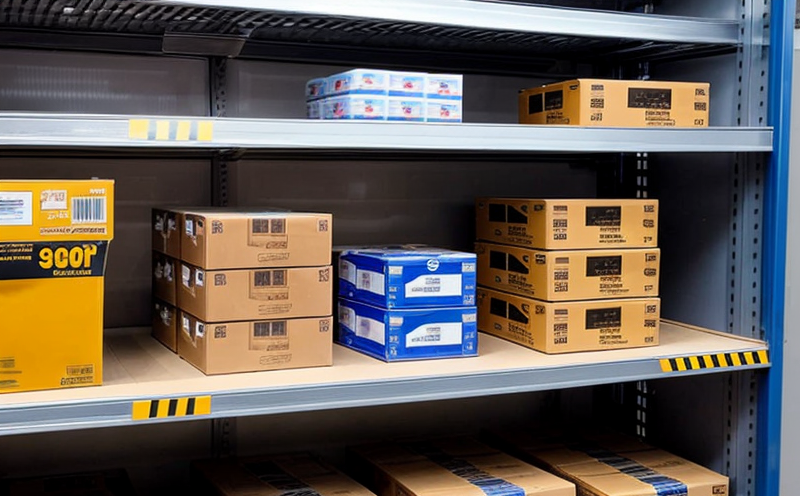ASTM F2095 Burst & Creep Testing Under Pressure
The ASTM F2095 standard outlines the procedures for burst and creep testing under pressure, which is critical for ensuring the integrity of packaging materials used in medical devices. This method evaluates how a package behaves under high-pressure conditions to ensure it can safely contain and protect its contents during transport and storage.
Burst and creep testing under pressure is particularly important because it simulates real-world scenarios where packages may be subjected to mechanical stress, temperature variations, or other environmental factors that could compromise their structural integrity. Understanding how packaging behaves under these conditions helps manufacturers ensure compliance with regulatory requirements and improve product safety.
ASTM F2095 specifies that the burst test measures a specimen's ability to withstand sudden increases in pressure without failure, while creep testing assesses long-term deformation of the material over time at constant pressure. These tests are crucial for ensuring that packaging materials can perform reliably under expected conditions throughout their lifecycle.
The testing process typically involves preparing a sample of the packaging material according to ASTM F2095 guidelines. The specimen is then placed in a chamber where it undergoes controlled pressure increases, either suddenly (burst test) or gradually over time (creep test). Data collected during these tests provides insights into the mechanical properties and durability of the materials used.
Compliance with this standard ensures that packaging meets rigorous quality standards set forth by regulatory bodies like the FDA. By conducting ASTM F2095 burst and creep testing, manufacturers can demonstrate adherence to international best practices and enhance consumer confidence in their products.
The importance of this test extends beyond mere compliance; it also contributes significantly to improving product design and performance. Testing helps identify potential weaknesses early on, allowing for necessary adjustments before production begins, ultimately leading to safer and more reliable medical devices.
Understanding the principles behind ASTM F2095 is essential for those involved in quality management, compliance, research & development (R&D), and procurement within the medical device industry. Familiarity with these tests enables stakeholders to make informed decisions about material selection and process improvements that could impact overall product performance.
For instance, understanding how different materials behave under pressure can influence design choices for various applications ranging from simple disposable devices to complex implantable systems. Knowledge gained through ASTM F2095 testing allows manufacturers to optimize their processes, ensuring they produce packages capable of protecting sensitive medical equipment and supplies effectively.
In summary, ASTM F2095 burst & creep testing under pressure is a vital tool for assuring the integrity of packaging used in medical devices. Through rigorous evaluation of materials' performance under stress conditions, this standard contributes significantly to enhancing product safety and reliability across various sectors within healthcare.
Industry Applications
- Biochemicals and pharmaceutical manufacturing
- Pharmaceutical packaging and delivery systems
- Diagnostics and laboratory equipment supply chain management
- Medical device sterilization processes
- In-vitro diagnostic (IVD) product development lifecycle
- Sterile barrier system design and validation for medical devices
- Biocompatibility testing of packaging materials in contact with biological fluids
Burst and creep testing under pressure is widely used across these industries to ensure that packaging remains intact during transportation, storage, and handling. Compliance with relevant standards like ASTM F2095 helps manufacturers meet regulatory requirements while enhancing product safety.
For example, in the pharmaceutical industry, ensuring proper containment of medications is paramount. Burst testing can verify that vials or ampules will not rupture during shipment, whereas creep testing ensures that seals remain intact over extended periods, maintaining sterility until use.
In diagnostics and IVD products, accurate results depend on preventing contamination from external sources. By adhering to ASTM F2095 standards, companies can guarantee their packaging maintains integrity against potential breaches due to mishandling or environmental factors throughout the supply chain.
Eurolab Advantages
At Eurolab, we pride ourselves on offering comprehensive and reliable testing services tailored specifically for the medical device industry. Our team of experts is dedicated to providing accurate results that meet or exceed all relevant standards, including ASTM F2095.
- State-of-the-art equipment ensures precise measurements and consistent results
- Certified personnel with extensive experience in performing ASTM F2095 tests
- Comprehensive data analysis to provide actionable insights for continuous improvement
- Support throughout the entire testing process, from initial consultation through final report delivery
- A commitment to confidentiality and integrity of test results
- Access to industry-leading laboratories equipped with advanced instrumentation
We understand that every company has unique needs when it comes to quality assurance and compliance. That's why our approach is flexible, allowing us to customize solutions based on your specific requirements.
Use Cases and Application Examples
In a recent case study involving a new line of biocompatible medical device packaging, Eurolab performed ASTM F2095 burst & creep testing. The results provided critical data on the material's ability to withstand pressure changes during transport while maintaining its integrity over extended storage times.
Another example comes from a manufacturer developing sterile barrier systems for surgical instruments. Using our laboratory services, they were able to validate their designs against ASTM F2095 standards successfully, ensuring that the packaging would not fail under anticipated conditions during use.
A pharmaceutical company sought assistance in optimizing its drug delivery system's packaging. Our team conducted rigorous burst and creep tests according to ASTM F2095 guidelines, helping them refine their formulation process to achieve optimal results.
These real-world applications demonstrate how Eurolab supports clients across various stages of product development—from initial concept through final implementation—ensuring compliance with international standards like ASTM F2095 while delivering valuable feedback for continuous improvement.





